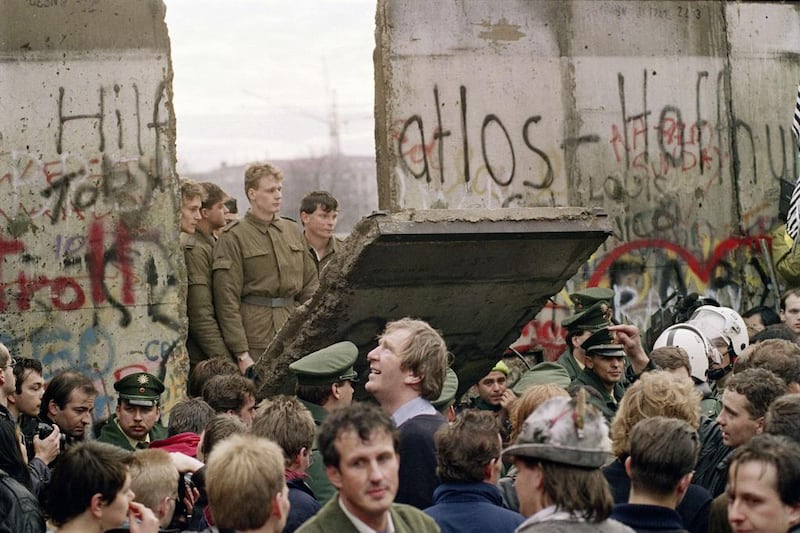History may not be made overnight, but it can take a sharp turn. This is what happened when the Berlin Wall fell on November 9, 1989. The opening of the wall marked the end of the bipolar world: an East-West confrontation that had fuelled a nuclear arms race and shaped politics for decades.
While it happened overnight, the wall’s collapse was the result of a lengthy gestation. The driving forces of this process were two-fold. The first was the inability of the communist system to keep up with western progress. The ever-widening gap undermined the legitimacy of those regimes and thus encouraged the emergence of the second driving force behind the fall of the wall, namely the popular movements that successfully challenged communist orthodoxy.
Understanding this with the benefit of hindsight is no great feat. Yet when the wall fell, it came like a bolt from the blue.
The wall was erected in 1961. Although it lasted fewer than 30 years, we had begun to disbelieve that great truth put in a nutshell by an American historian: “If history teaches us anything it is to expect, sooner or later, the unexpected.”
It may well be almost impossible to expect the unexpected. But the point is this: never take anything for granted. History is to be made rather than predicted.
When communism collapsed, history was made in Europe. In Germany, we seized the opportunity to reunite. For while we had been a divided country, we had never been a divided nation.
My own life story is proof of this. I was born and raised in West Germany. My family had no relatives in East Germany, and we had no contact whatsoever with East Germans. But when the wall came down, I was in tears. German nationhood had survived a separation by force.
Yet what happened 25 years ago had a European dimension as well. For the wall and the Iron Curtain had not only divided Germany, they had also divided Europe. So when the wall collapsed, Europe was given the chance to become whole and free.
Germans will never forget the support and the trust extended to us by our European neighbours and our American friends that facilitated German reunification. In Western Europe, we had already drawn the key lesson of two world wars fought in Europe: unite and no more fight.
This founding impetus of European integration was made sustainable by a sense of belonging to a common space, the similarity of democratic institutions, as well as mutually beneficial trade and investment within a single European market. In today’s world, the rationale for a united Europe is even stronger because by pooling their sovereignty, European nations can exert collective influence on global affairs that none of Europe’s powers could by acting alone.
So when the wall came down, the door for coming together was opened not only for Germans but for Europeans as well. Today, there are 28 EU member states.
Ours is a voluntary association of nation-states. The concept of the nation-state was developed in Europe. When nationhood turned into nationalism, the ensuing rivalry led to war and destruction. Today, our national identities still differentiate us, but they no longer divide us. I have a passport that entitles me to citizenship rights in all EU member states. As nation-states we pursue national interests that can bring us into sharp conflict. However, in a historic break with centuries of wars we have come to trust each other that conflicts will be resolved peacefully and through compromise.
The fall of the wall provided the litmus test. Concerns were voiced at the time that a united Germany of more than 80 million people, liberated from the shackles of a highly vulnerable position at the front line of the Cold War, would again be “too big for Europe” and succumb to nationalist temptations. It did not happen and it will not happen. Germans know that peace and prosperity are common goods: as neighbours in Europe we either enjoy them together or we lose them together.
So 25 years ago, history took a sudden turn in Europe. A wall fell overnight that had torn apart Germany and the European continent. The wall’s concrete had made us believe that it was immovable. But then history, propelled by popular movements, revealed that it was built on shaky ground.
Dr Eckhard Luebkemeier is Germany’s ambassador to the UAE





